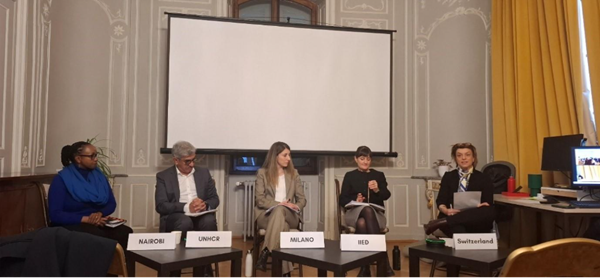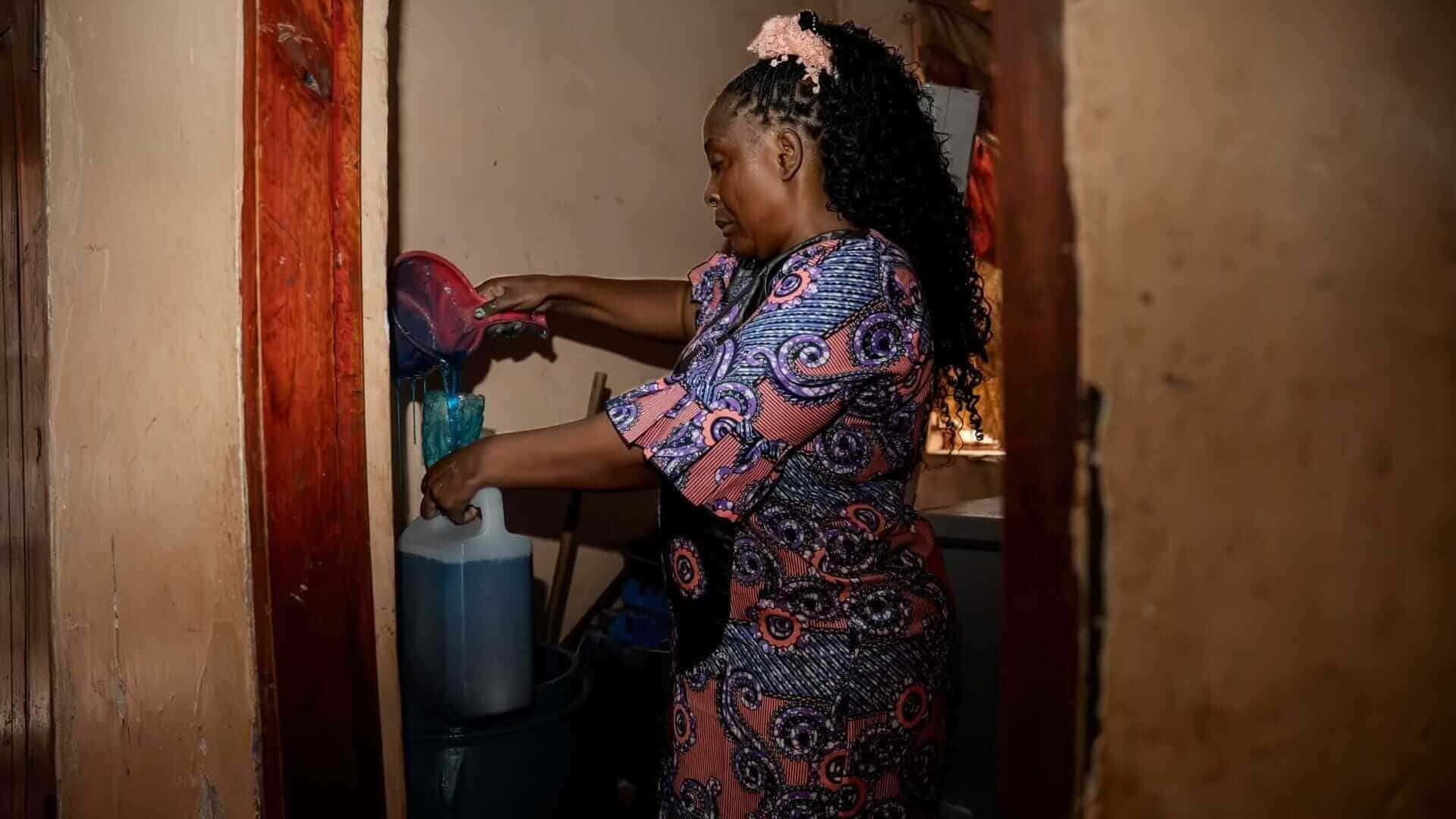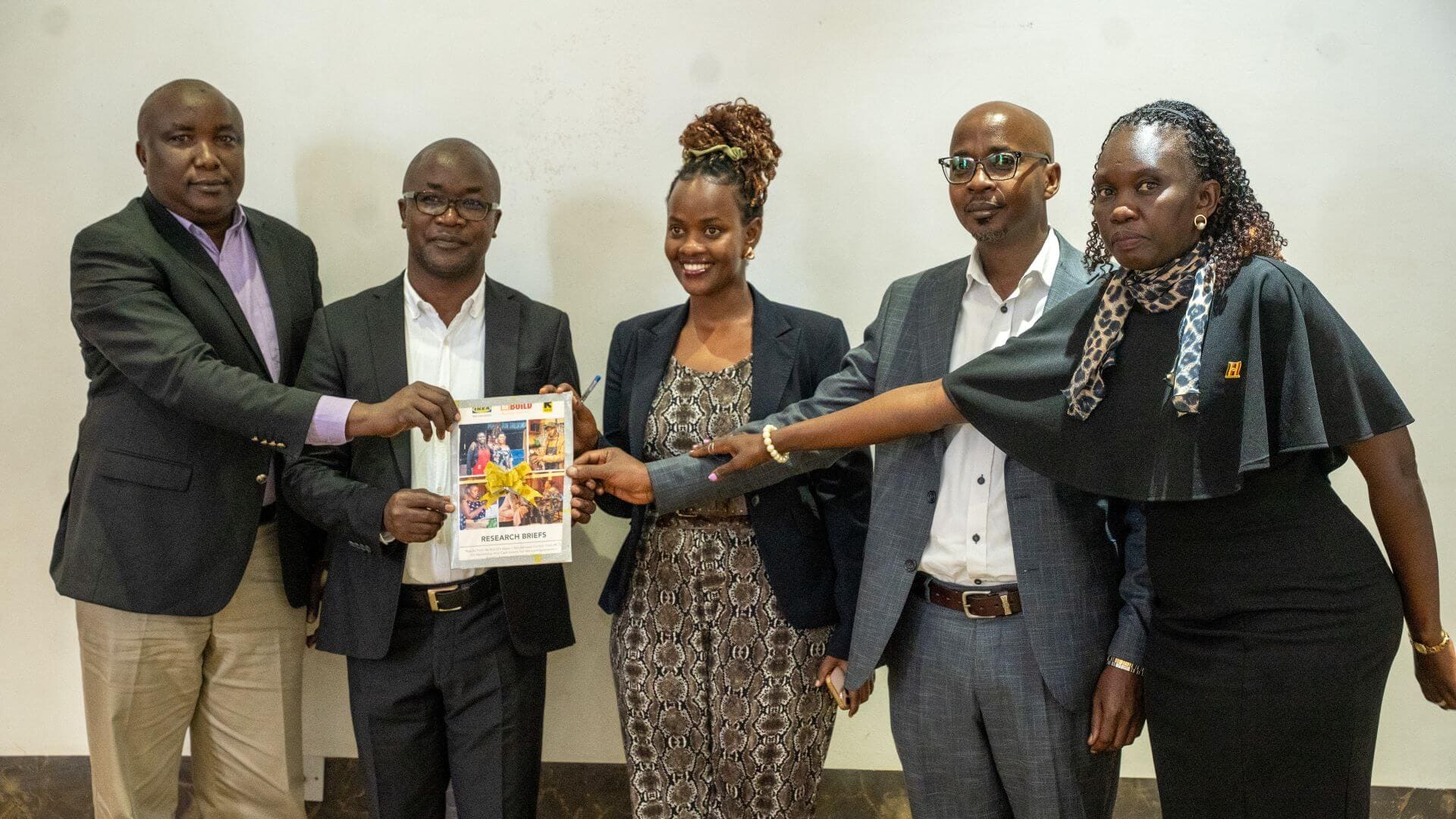RCT Wave 2 Activity Update
RCT Wave 2 Activity Update
RCT Wave 2 Activity Update
By Nathan Tibaku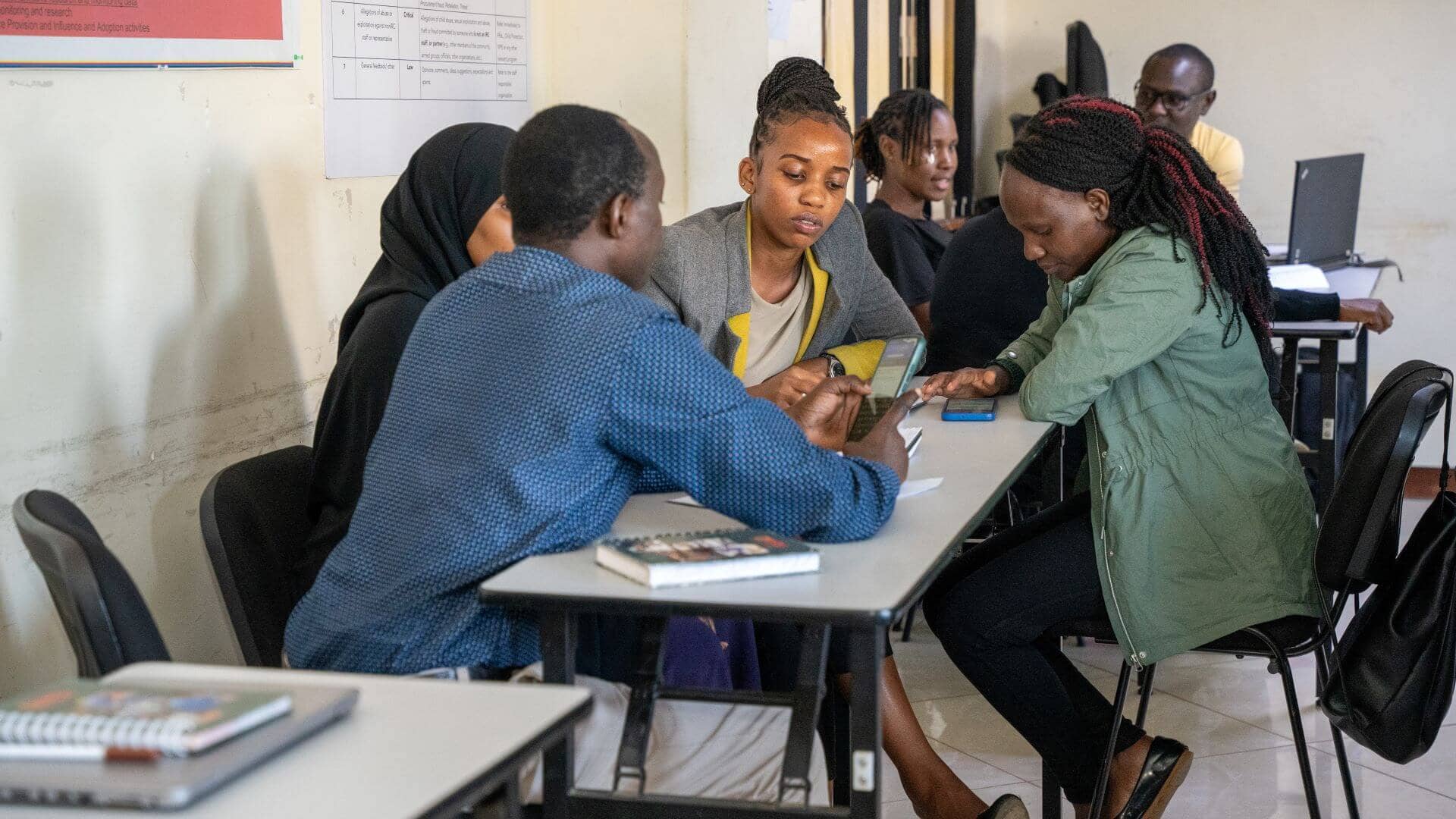
February 27, 2025, Nairobi, Kenya. Re:BUiLD community facilitators at a business verification training workshop in Nairobi for the RCT wave 2 intervention. (PHOTO: Edgar Otieno for The IRC)
The second-wave study of the Re:BUiLD program Randomized Controlled Trial (RCT) is progressing as planned. The International Rescue Committee (IRC), in partnership with researchers from the Immigration Policy Lab at Stanford University (IPL) and the Georgetown University Initiative on Innovation, Development, and Evaluation are studying the effects of business grants and networking on business and social outcomes for urban refugees and hosts in Nairobi and Kampala.
This quarter, the Evidence and Learning pillar under the Re:BUiLD program initiated the behavioral measure of collaboration and began verifying businesses of Wave 2 RCT clients who received grants in the last quarter.
The behavioral measure of collaboration is an initiative within the second wave of RCT designed to assess clients' willingness to work with others. Under the initiative, was the opportunity for a small additional collaboration grant for teams interested in working together on a collaborative business idea. "Collaboration is one of the key mechanisms under the networking intervention of the study to help improve the social and business outcomes for clients," says Caroline Agabiirwe, the Research Manager at the Re:BUiLD program.
The initiative fills current gaps in the assessment of the networking intervention from self-reported surveys and helps better understand collaboration behavior among refugees and hosts; for example, whether the intervention affects who clients are willing to collaborate with in terms of the mix of their gender, nationality, refugees, or hosts.
Clients with already existing collaboration businesses or those interested in starting had the opportunity to apply for the grant via either an online or paper application in groups of 3-8 members. For a team to be eligible for the collaboration grant, it was required that at least one member be a current participant in the wave 2 RCT study and that each team member contribute their own money, and together have a total contribution of between 37 euros to 385 euros as capital for their joint business venture.
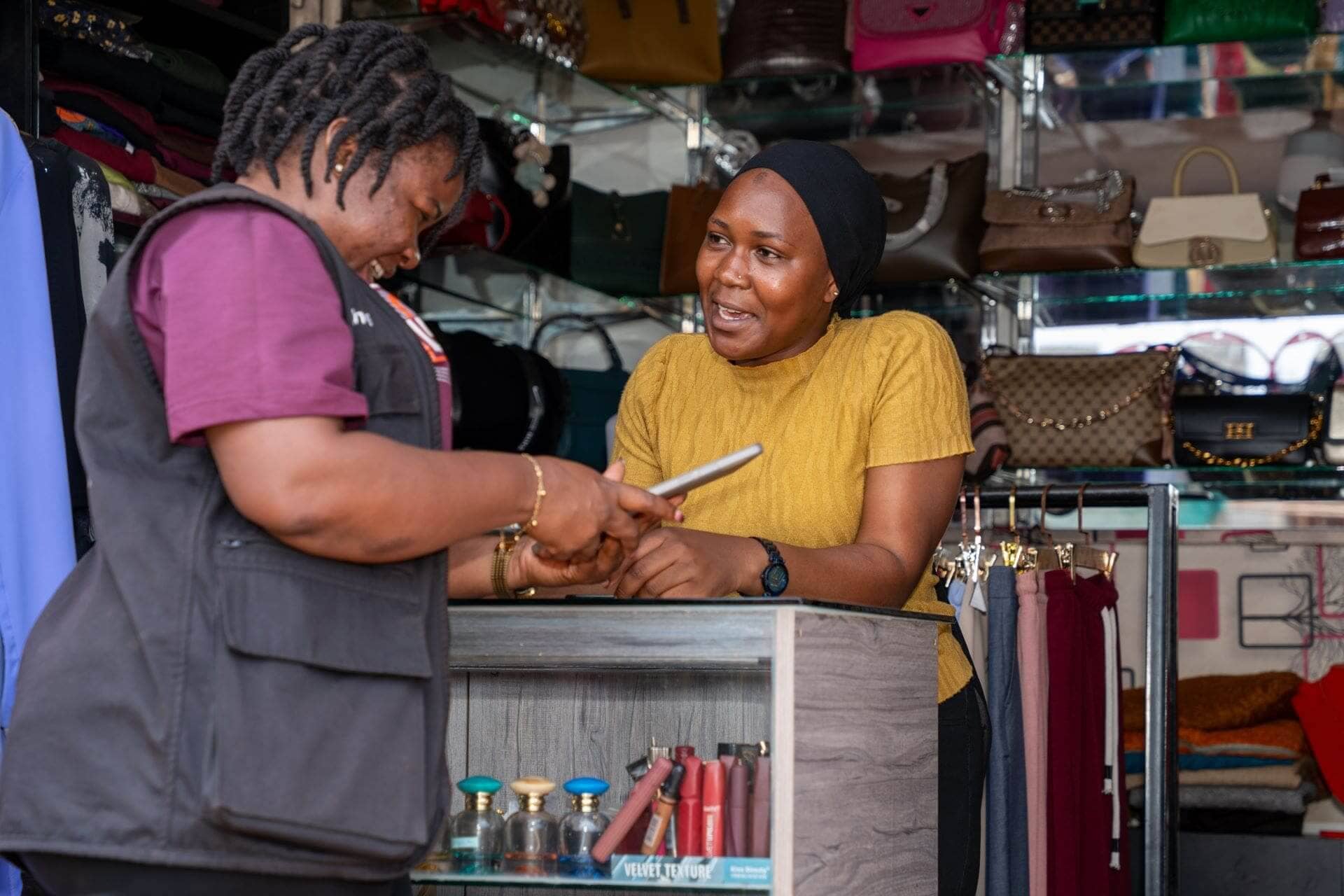
March 12, 2025, Kampala, Uganda. A Re:BUiLD community facilitator (left) verifying a business in Kampala for the RCT wave 2 intervention. (PHOTO: Nathan Ijjo Tibaku for The IRC)
In each city, only 10 winning teams would be randomly selected for the grant and their total amount be doubled by the Re:BUiLD program and sent back to the group, with each member receiving an equal amount.
Overall, a total of 2124 applications were eligible for the collaboration to grant both in Kenya and Uganda. The principal investigators supported the random selection of the 10 teams in Kampala and Nairobi. The selected teams have now been informed and further steps are being taken to have their collaboration grants disbursed.
The business verification activity is a monitoring exercise targeting all the recipients of the second wave of RCT business grants in the last quarter. So far of those who have been contacted and visited, 1010 in Uganda and 1170 in Kenya have been verified to have operational business i. Of these, 671 and 537 have physical stores in Uganda and Kenya, respectively. Others are either hawking their goods, selling online, or in an open space.
